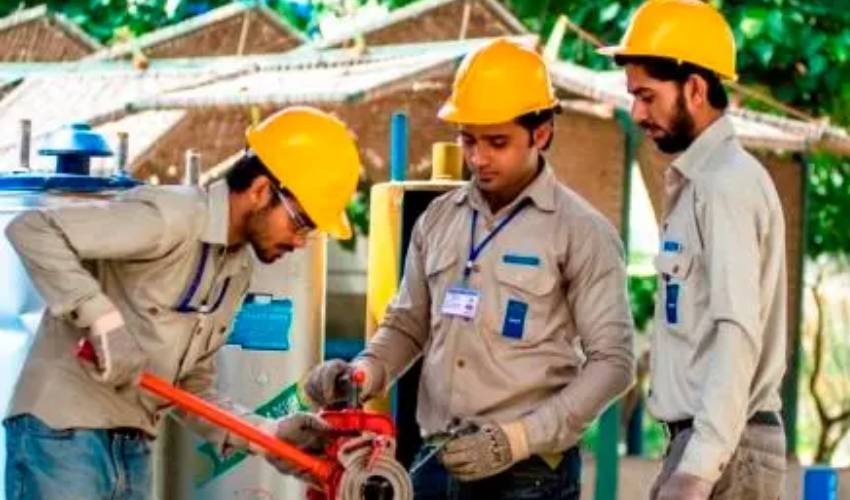The 2024 Global Skills Report - published by Coursera - the world's largest provider of Massive Open Online Courses (MOOCs), places Pakistan at 84th out of 109 countries in global skills proficiency rankings. This is a notable improvement from last year, where Pakistan was ranked 92nd out of 100 countries.
Despite this progress, Pakistan remains classified as "lagging" in skills proficiency both globally and regionally within the Asia-Pacific. This blog delves into the implications of these rankings, the role of MOOCs in Pakistan's educational landscape, and the potential for domestic universities to leverage online education.
Pakistan's rise from 92nd to 84th place out of a larger cohort signifies a positive trend. It indicates that Pakistan is making strides in improving skills proficiency, surpassing regional neighbours like Oman, India, and Bangladesh. In the Asia-Pacific region, Pakistan is ranked 15th out of 23 countries. Despite these gains, the classification as "lagging" highlights the significant challenges that remain.
The Global Skills Report breaks down rankings into three main areas: business, technology, and data science. Pakistan scored modestly higher in business skills but lagged in technology and data science compared to immediate neighbors such as India and Sri Lanka. This disparity points to specific areas where targeted efforts and investments are needed to enhance technical skill development.
MOOCs have revolutionized access to education, offering learners worldwide the opportunity to acquire new skills at their own pace. For countries like Pakistan, where traditional educational resources may be limited or inaccessible to many, MOOCs present an invaluable resource. They allow learners to access courses from top universities and institutions globally, often for free or at a low cost.
Challenges and limitations
However, the uptake and impact of MOOCs in Pakistan face several challenges:
1. Accessibility: Although many MOOCs are free to browse, obtaining verifiable certificates often requires a subscription, typically paid by credit card. This payment barrier is significant for many in Pakistan.
2. Active learners: Pakistan does not appear in the report’s top-20 list of countries by percentage of the labor force active on the Coursera platform. This suggests that a relatively small proportion of the workforce is engaging with these courses.
3. Depth of learning: MOOCs are excellent for introductory learning and skill acquisition but typically offer a shallower depth of knowledge compared to traditional university courses. A single MOOC course may take 15-20 hours to complete, whereas a university course involves significantly more time and rigorous assessment.
MOOCs are great for motivated, genuine learners but are often insufficient for deep, comprehensive learning. Solutions to tests and assessments are readily available on the internet, allowing less genuine learners to pass courses without mastering the content. This undermines the credibility of MOOC certificates compared to traditional university grades, which are usually earned through controlled, supervised assessments.
Given the global interest in MOOCs, several Pakistani universities are exploring the possibility of offering their own online micro-credential courses. This approach aims to extend their reach, enhance their educational impact, and create new revenue streams. Domestic MOOCs could capitalize on the local language barrier, offering courses in Urdu or other regional languages to attract local learners.
Unique selling points
For Pakistani universities to succeed in the competitive MOOC space, they need to identify unique selling points that differentiate their offerings from international platforms. These could include:
1. Local language offerings: Providing courses in Urdu or other local languages to cater to a broader domestic audience.
2. Cultural relevance: Designing courses that address specific local needs and contexts, making them more relevant and practical for Pakistani learners.
3. Reputation: Leveraging the reputation of top domestic universities with selective or costly degree programs to attract learners.
Strategic considerations
Before investing resources in developing MOOCs, Pakistani universities need to consider:
1. Market demand: Assessing how many learners would choose their courses over those from renowned global institutions and why.
2. Quality and credibility: Ensuring that courses maintain high standards and offer credible certification to compete effectively.
3. Sustainability: Creating course materials and assessments that can be updated and reused annually, ensuring the sustainability of the MOOC offerings.
MOOCs should be viewed as a complement, rather than a substitute, to traditional degree programs. They can provide flexible learning opportunities, allowing individuals to acquire specific skills quickly and efficiently. However, they cannot replace the depth and rigor of a comprehensive university education.
MOOCs offer a valuable resource for lifelong learning, enabling individuals to continue their education and stay updated with the latest developments in their field. This is particularly important in the rapidly evolving landscape of technology and business, where continuous learning is essential.
MOOCs can help bridge knowledge gaps for specific tasks or positions, providing targeted learning opportunities for professionals looking to upskill or reskill. This can enhance employability and career advancement opportunities for many individuals in Pakistan.
To maximize the impact of MOOCs, it is crucial to address the digital divide in Pakistan. Expanding access to reliable internet and digital devices is essential for enabling more people to take advantage of online learning opportunities.
Government and institutional support can play a pivotal role in expanding access to MOOCs. Initiatives to subsidize internet costs, provide digital devices, and offer free or discounted access to online courses through partnerships with platforms like Coursera can significantly enhance participation.
The 2024 Global Skills Report highlights both progress and challenges for Pakistan in the realm of global skills proficiency. While the country has improved its rankings, significant gaps remain, particularly in technical skills. MOOCs present an invaluable opportunity to enhance education and bridge knowledge gaps, but they cannot replace the depth and rigor of a good university degree program.
For Pakistani universities considering the MOOC space, strategic planning and a clear understanding of their unique value propositions are essential. By leveraging local language offerings and maintaining high standards of quality and credibility, domestic MOOCs can complement traditional education and contribute to the country's educational and economic development.
Ultimately, integrating MOOCs into Pakistan's educational framework requires a comprehensive approach, addressing accessibility issues, ensuring sustainability, and recognizing the role of online education as a valuable supplement to comprehensive degree programs. By doing so, Pakistan can harness the potential of MOOCs to promote lifelong learning, enhance skills proficiency, and better prepare its workforce for the demands of the global economy.


























